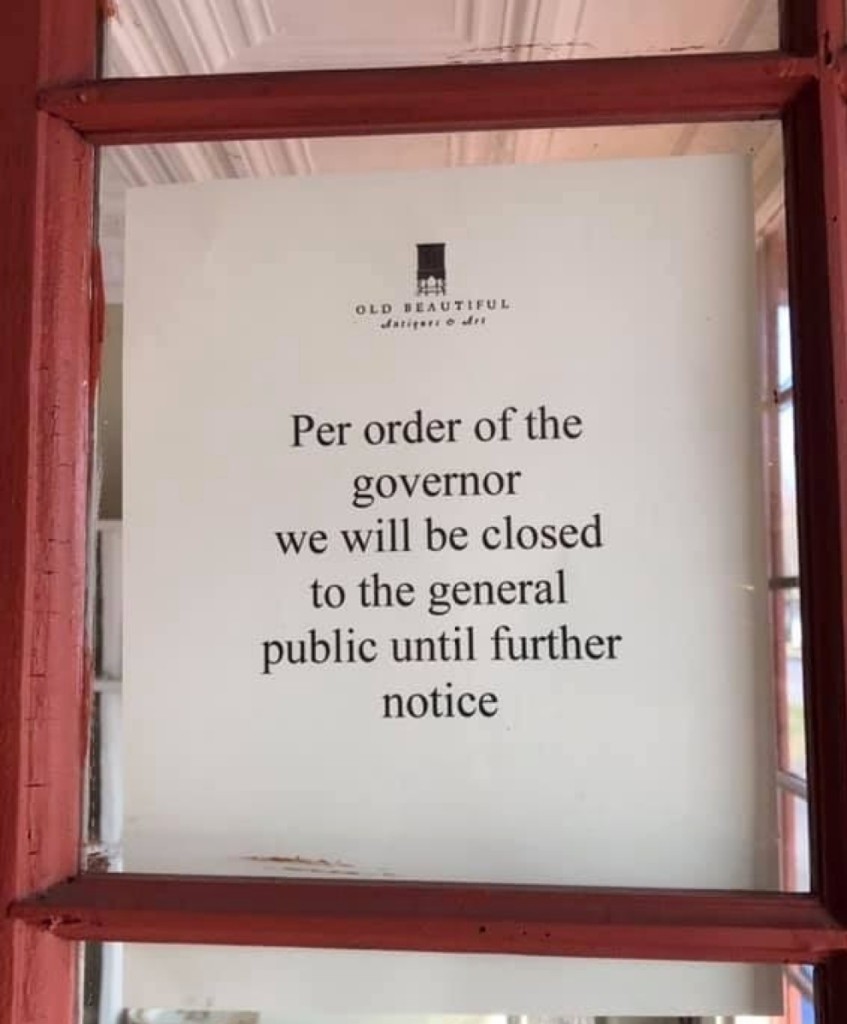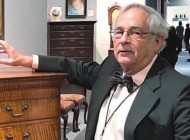
David Perrelli, owner of Old Beautiful, Clinton, Conn., posted this sign to his gallery door. He wrote, “This is not a sign I ever imagined myself making.”
By Greg Smith
HARTFORD, CONN. – Speaking from the Hartford Armory on Friday March 20, Connecticut governor Ned Lamont ordered all non-essential workers in the state to stay home.
In an alternate timeline where things were business as usual, more than 40 dealers would have been at work in that same building putting the finishing touches on their booths as the Connecticut Spring Antiques Show opened the next morning.
At time of publication, six other states have enacted similar measures: New York, Pennsylvania, Illinois, New Jersey, California and Oregon. (3/25 edit: add Delaware, Hawaii, Indiana, Louisiana, Massachusetts, Michigan, New Mexico, Ohio, Oregon, West Virginia, Wisconsin)
Varying by state, these orders have forced non-essential retailers – antiques dealers, galleries, auctioneers and other sellers among them – who do business within their borders to close their brick and mortar shops to the public.
More states are likely to follow as state governments individually, and in some neighboring cases collectively, scramble to contain the COVID-19 outbreak in lieu of any nationwide Federal regulations.
State closures of non-essential brick and mortar retail business are in following of the CDC’s recommendations that aim to promote social distancing and the minimization of public gatherings in any form that may exceed ten people.
At least in Connecticut, workers may still go into their shops and galleries to sell through online, phone or mail-order channels, so long as they provide curbside pickup or mail delivery.
Retailers and sellers have adapted by focusing their businesses towards online selling platforms and their own websites in the interim. Social media sites Instagram and Facebook have shown sales for dealers who promote their inventory in genre-specific collector groups.
Dealers remain hopeful that an online presence will help dampen the blow that saw the loss of all physical selling venues for at least the next two months.
Auctioneers remain hopeful that the online auction platforms will help them reach bidders across the country. Naturally, that does little to ease the anxiety of consignors who brought their goods to the wholesalers in a perfectly acceptable market, and are contractually obligated to now sell their goods in an extremely volatile economy. For this reason, many auctioneers have pushed off their premier sales months ahead, moving to the forefront their discovery or economy sales of art and objects of lesser value. Some auctioneers have reported that these online sales are producing new clients.




